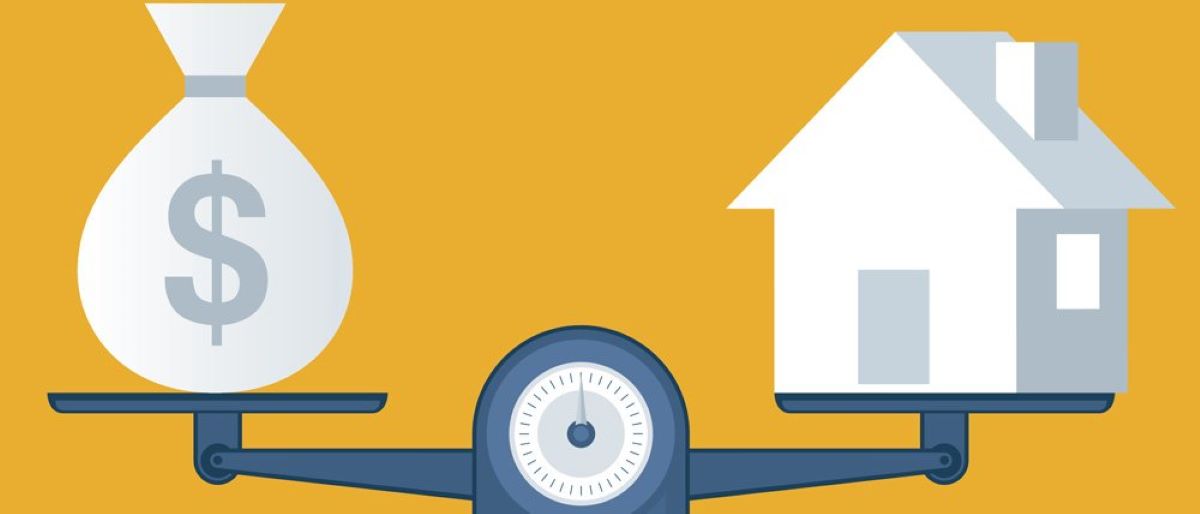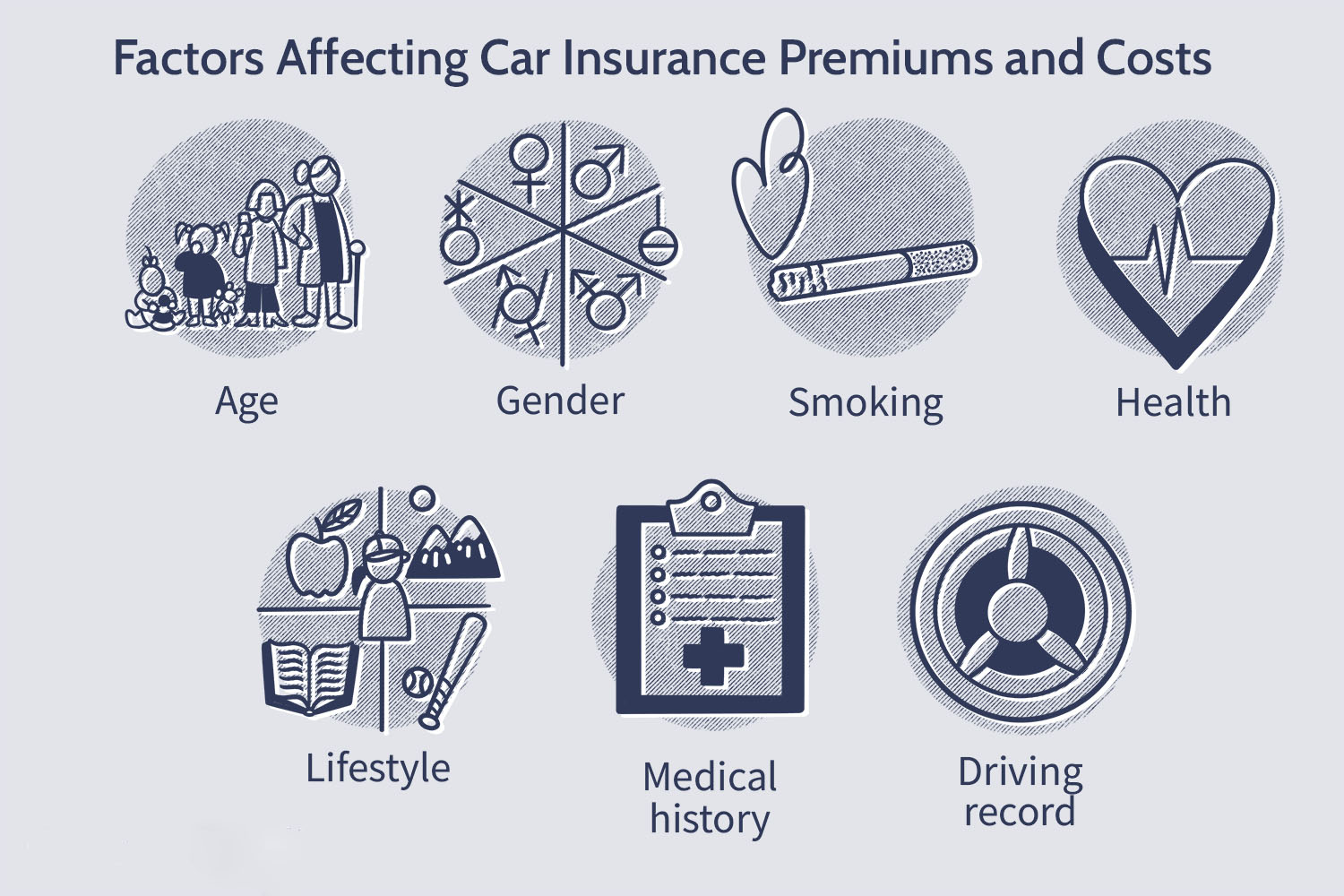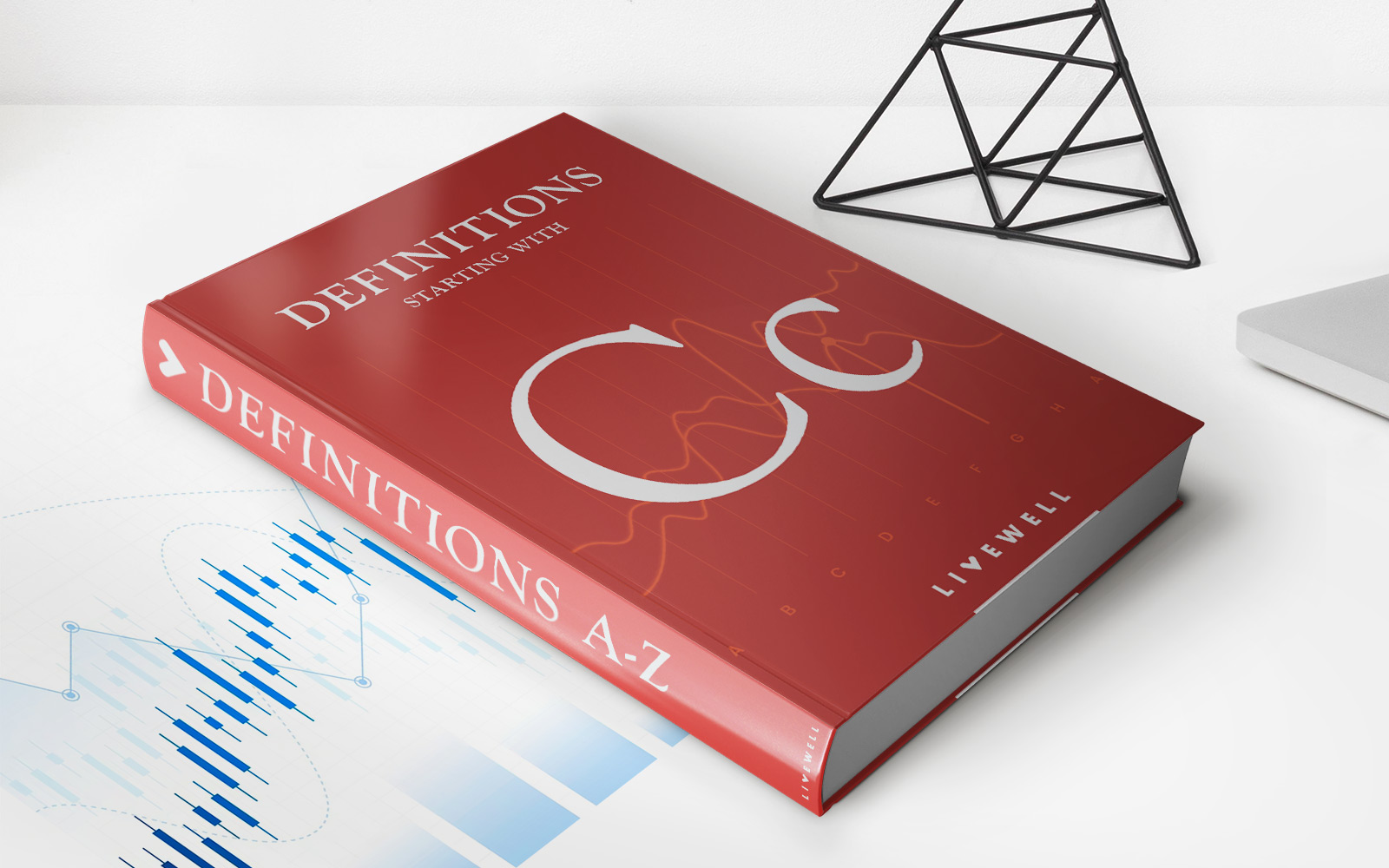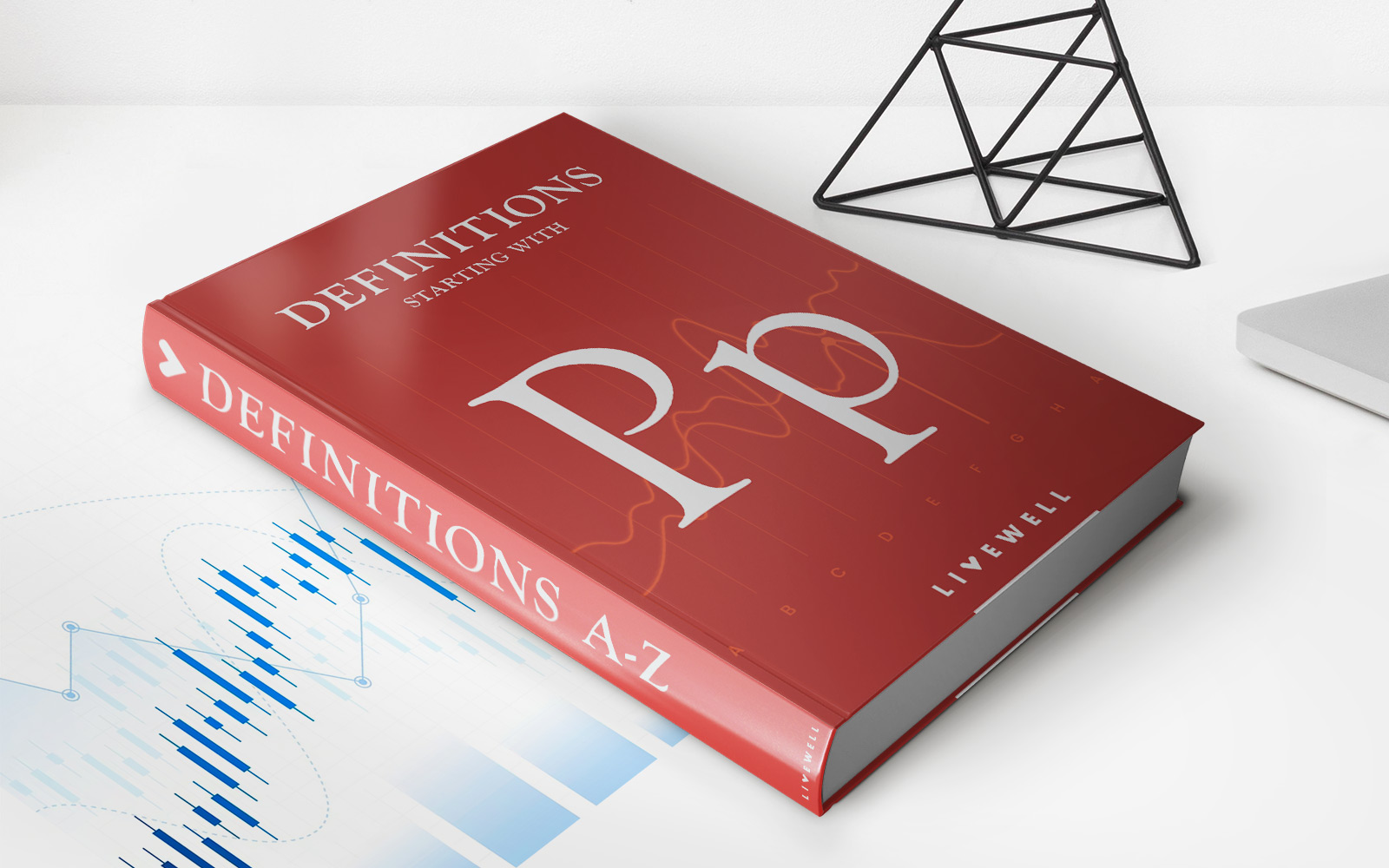Home>Finance>Which Of The Following Can Lower The Property Insurance Premium?


Finance
Which Of The Following Can Lower The Property Insurance Premium?
Modified: January 22, 2024
Lower your property insurance premium by implementing smart financial strategies and leveraging your knowledge of finance. Find out which methods can save you money!
(Many of the links in this article redirect to a specific reviewed product. Your purchase of these products through affiliate links helps to generate commission for LiveWell, at no extra cost. Learn more)
Table of Contents
- Introduction
- Installing a Security System
- Upgrading Electrical and Heating Systems
- Improving Fire Safety Measures
- Enhancing Home Structure to Withstand Natural Disasters
- Implementing Water Damage Prevention Measures
- Choosing a Higher Deductible
- Maintaining a Good Credit Score
- Bundling Policies with the Same Insurance Provider
- Reviewing and Updating Coverage Regularly
- Conclusion
Introduction
Property insurance is an essential part of protecting your home and belongings from unforeseen events and disasters. Whether you own a house or rent an apartment, having insurance coverage gives you peace of mind and financial security in case of property damage or loss.
However, property insurance premiums can sometimes be costly, and finding ways to lower them can help you save money without compromising your coverage. Fortunately, there are several actions you can take to reduce your property insurance premium and still maintain adequate protection.
In this article, we will discuss various strategies that can help lower your property insurance premium. By implementing these measures, you can potentially save a significant amount of money on your insurance costs while ensuring the safety and security of your property.
Keep in mind that insurance policies and requirements may vary depending on your location and insurance provider. It is always recommended to consult with your insurance agent or provider to understand the specific details and options available to you.
Now, let’s explore the different ways to lower your property insurance premium.
Installing a Security System
One effective way to lower your property insurance premium is by installing a security system in your home. Insurance companies often offer discounts for homes equipped with burglar alarms, security cameras, and other security measures. These systems act as a deterrent to potential intruders and reduce the risk of theft or property damage. They provide an added layer of protection, giving insurance providers more confidence in the safety of your property.
When selecting a security system, consider features such as motion sensors, door/window sensors, and a central monitoring station. These features not only enhance the security of your home but also increase the likelihood of qualifying for insurance discounts.
Additionally, the type of security system you choose can impact the amount of discount you receive. For example, some insurance companies offer higher discounts for professionally monitored security systems compared to self-monitored systems.
It is crucial to inform your insurance provider once you have installed a security system. They may ask for proof of installation, such as a certificate from the security system provider. This documentation is necessary to ensure you receive the appropriate premium reduction.
Installing a security system not only helps lower your insurance premium but also provides you with peace of mind knowing that your property is protected against potential theft and intrusions.
Upgrading Electrical and Heating Systems
Another effective way to lower your property insurance premium is by upgrading your electrical and heating systems. Outdated or faulty systems can increase the risk of electrical fires or other mishaps, leading to potential property damage or loss. By taking steps to improve the safety and efficiency of these systems, you can reduce the risk for insurers and potentially qualify for lower premiums.
An electrical system upgrade may involve replacing old wiring, upgrading circuit breakers, and ensuring proper grounding. Similarly, upgrading your heating system may include installing a new furnace, updating insulation, or improving energy efficiency with programmable thermostats.
Insurance providers often offer discounts to homeowners who have made these upgrades, as they demonstrate a commitment to maintaining a safe and well-maintained property. By reducing the risk of electrical or heating-related incidents, you not only protect your home but also improve your chances of receiving lower insurance premiums.
While upgrading electrical and heating systems can require an initial investment, it can lead to long-term savings. Not only will you save on insurance premiums, but you might also experience lower energy bills due to increased efficiency.
It is important to keep records of any upgrades or renovations you make to your electrical and heating systems. Maintain documentation, such as receipts, inspection reports, or permits, to provide proof to your insurance provider. This way, you can ensure that you receive the appropriate premium reduction based on the improvements you have made.
Remember, upgrading your electrical and heating systems not only lowers your insurance premium but also enhances the safety and functionality of your home, providing you and your loved ones with greater peace of mind.
Improving Fire Safety Measures
Fire is a significant risk to property, and insurance companies take fire safety very seriously when determining premiums. Taking steps to improve your home’s fire safety measures can be an effective way to lower your property insurance premium. By reducing the risk of fire-related incidents, you reduce the likelihood of filing a claim, which can result in lower premiums.
One of the most crucial fire safety measures is installing smoke detectors on every floor of your home. These devices can detect smoke early and alert you to a potential fire, giving you enough time to evacuate and call emergency services. Insurance companies typically offer discounts for homes with functioning smoke detectors installed.
In addition to smoke detectors, consider installing fire extinguishers in key areas of your home, such as the kitchen, garage, or near fireplaces. Having easily accessible fire extinguishers can help contain small fires and prevent them from spreading, minimizing damage to your property.
Another important fire safety measure is ensuring your home has a fire-resistant roof. This can be achieved by using fire-resistant materials such as Class A rated roofing materials. A fire-resistant roof can significantly reduce the risk of fire spreading to your home and can potentially lead to insurance premium discounts.
Additionally, practicing proper electrical safety measures is crucial for fire prevention. Avoid overloading electrical outlets, regularly check electrical cords for damage, and refrain from using frayed or damaged cords. Inspecting your home’s electrical system periodically and fixing any issues promptly can help reduce the risk of electrical fires and demonstrate to insurance companies that you are proactive about fire safety.
It is important to consult with your insurance provider to understand their specific requirements for fire safety measures. They may provide you with a checklist or guidelines to help you make the necessary improvements.
Remember, by investing in fire safety measures, you not only lower your insurance premium but also protect your home and loved ones from the devastating effects of a fire.
Enhancing Home Structure to Withstand Natural Disasters
Natural disasters like hurricanes, earthquakes, and floods can cause significant damage to your property, leading to higher insurance premiums. However, taking steps to enhance your home’s structure to withstand these events can help lower your property insurance premium.
One way to enhance your home’s structure is by reinforcing the roof. Adding hurricane straps or using impact-resistant roofing materials can improve its ability to withstand strong winds and flying debris. This can result in insurance discounts as it mitigates the risk of roof damage during severe storms.
Similarly, reinforcing doors and windows against strong winds and impact can be beneficial. Installing hurricane shutters or impact-resistant windows can help prevent damage and intrusion during storms or high-velocity winds. Insurance companies often offer discounts for homes equipped with these protective measures.
If you live in an area prone to earthquakes, reinforcing your home’s foundation and structure against seismic activity is crucial. This can involve retrofitting your home with seismic retrofitting techniques, such as adding bracing or reinforcing walls. By reducing the risk of structural damage during earthquakes, you demonstrate to insurance providers that your home is less susceptible to costly repairs, leading to potential premium reductions.
Flooding is another natural disaster that can cause significant damage to your property. Raising electrical systems, heating equipment, and appliances above the potential flood level, installing flood-resistant barriers, and having a functioning sump pump can help minimize the risk of water damage. Insurance companies may offer lower premiums for homes equipped with flood mitigation measures.
It is essential to consult with experienced contractors or engineers who specialize in structural enhancements to ensure that your home meets the necessary requirements. They can assess your property, suggest appropriate improvements, and provide you with the documentation required by insurance providers to validate the enhancements.
By strengthening your home’s structure against natural disasters, you not only lower your insurance premium but also increase the safety and resilience of your property.
Implementing Water Damage Prevention Measures
Water damage can be a significant concern for homeowners, leading to costly repairs and potential increases in property insurance premiums. However, implementing water damage prevention measures can help lower your insurance premium and protect your property.
One of the most effective ways to prevent water damage is by ensuring that your home’s plumbing system is in good condition. Regularly inspect pipes, faucets, and water lines for leaks or signs of damage. Repair any leaks promptly, as even a small leak can result in extensive water damage over time.
Installing water leak detection devices can also mitigate the risk of major water damage. These devices can sense leaks and automatically shut off the water supply, helping to prevent significant water damage in case of a burst pipe or malfunctioning appliance.
Properly maintaining and clearing your gutters and downspouts is another important water damage prevention measure. Clogged gutters can lead to water overflow, causing water to seep into your home’s foundation or basement. Regularly clean gutters and ensure that downspouts direct water away from your home’s foundation.
Investing in a sump pump can provide an added layer of protection against water damage, particularly in areas prone to flooding or high water tables. A sump pump can help remove excess water from your basement or crawl space, preventing water damage and mold growth.
Another important step is to ensure your home has proper external drainage. Make sure the grade of your yard slopes away from your home’s foundation to prevent rainwater from pooling around the base of your house.
It is important to document any water damage prevention measures you have implemented. Providing proof of these measures, such as maintenance records or receipts for repairs, can potentially lead to insurance discounts and lower premiums.
By implementing water damage prevention measures, you not only protect your property but also demonstrate to insurance providers that you are proactively taking steps to mitigate potential water damage risks. This can result in lower property insurance premiums.
Choosing a Higher Deductible
When it comes to property insurance, the deductible is the amount you are responsible for paying before your insurance coverage kicks in. Typically, a higher deductible means a lower insurance premium. Choosing a higher deductible can be a strategic way to lower your property insurance premium.
When you opt for a higher deductible, you are essentially taking on more risk in the event of a claim. In exchange, insurance companies often offer lower premiums because they have a reduced financial liability for smaller claims.
Before deciding on a higher deductible, it’s essential to assess your financial situation and determine what you can comfortably afford to pay out of pocket in the event of a claim. Consider your emergency fund and ability to cover the deductible amount without causing financial strain.
Keep in mind that choosing a higher deductible means you will need to pay more upfront if you need to file a claim. However, if you rarely file claims or if you have the financial means to handle a higher deductible, it can be a cost-effective strategy in the long run.
It’s important to note that the deductible you choose should align with the value of your property and the level of risk you are comfortable assuming. For example, if you have a high-value property or live in an area prone to natural disasters, a higher deductible may not be the best option as the potential out-of-pocket expenses could be substantial.
When considering a higher deductible, it’s also useful to compare insurance quotes from multiple providers. Different insurers offer varying deductibles and premiums, so it’s important to evaluate your options and select the best combination for your needs.
Remember to review your insurance policy carefully, paying attention to the language regarding deductibles and coverage limits. Understanding the terms and conditions of your policy will ensure that you make an informed decision and select the deductible option that works best for you.
Ultimately, choosing a higher deductible can be a practical strategy to lower your property insurance premium. However, it’s important to weigh the potential cost savings against your financial capabilities and the level of risk you are comfortable assuming.
Maintaining a Good Credit Score
Believe it or not, your credit score can impact your property insurance premium. Insurance companies often consider your credit history and credit score when evaluating your risk profile. Maintaining a good credit score can not only help you secure better rates on loans and credit cards but also lower your property insurance premium.
Insurance providers view individuals with higher credit scores as more financially responsible and less likely to file claims. As a result, they may offer lower premiums to those with good credit scores.
To maintain a good credit score, consider the following tips:
- Pay your bills on time: Late payments can have a negative impact on your credit score. Set up automatic payments or reminders to ensure you pay your bills by their due dates.
- Keep your credit utilization low: Aim to use only a small percentage of your available credit. Paying off credit card balances in full each month can help keep your credit utilization ratio low.
- Avoid opening unnecessary accounts: Opening multiple new credit accounts within a short period can lower your credit score. Only open new accounts when necessary.
- Monitor your credit regularly: Check your credit reports periodically to identify any errors or fraudulent activity. Dispute inaccuracies promptly to ensure your credit score accurately reflects your creditworthiness.
- Limit hard credit inquiries: Each time you apply for new credit, it triggers a hard inquiry, which can temporarily lower your credit score. Be selective when applying for new credit and only do so when necessary.
- Establish a good credit mix: Having a diverse credit portfolio that includes credit cards, loans, and mortgages can demonstrate responsible handling of different types of credit.
By maintaining a good credit score, you not only improve your financial well-being but also increase your chances of obtaining a lower property insurance premium. Consult with your insurance provider to understand how your credit score affects your premium and what steps you can take to improve it.
Bundling Policies with the Same Insurance Provider
One effective way to lower your property insurance premium is by bundling multiple policies with the same insurance provider. Insurance companies often offer discounts to customers who have multiple policies, such as home insurance, auto insurance, or even life insurance, with them.
By consolidating your insurance needs with one provider, you not only simplify your insurance management but also potentially save on your premiums. The bundled discount can vary based on the insurance provider and the specific policies being bundled.
When you bundle policies, insurance companies appreciate the increased customer loyalty and reduced administrative costs associated with managing multiple policies. As a result, they are more likely to offer you a discounted rate.
In addition to potential cost savings, bundling policies also offers other benefits, such as:
- Convenience: Managing all your insurance policies in one place streamlines the process. You have a single point of contact for any questions or claims, making it easier to deal with insurance matters.
- Policy consistency: Bundling policies ensures that your coverage is cohesive and coordinated across all policies. This can help prevent gaps or overlaps in coverage, providing you with comprehensive protection.
- Simplified billing: With bundled policies, you typically receive a single bill for all your coverages. This reduces the hassle of keeping track of multiple payment due dates and simplifies your financial management.
To determine if bundling policies will result in cost savings, it’s important to do your research and compare quotes from different insurance providers. While bundling policies can lead to discounts, it may not always be the most cost-effective option. Be sure to review the terms, conditions, and coverage details of each policy to ensure they meet your specific needs.
When considering bundling, it’s also essential to evaluate the reputation and financial stability of the insurance provider. Look for a company with a strong track record of customer satisfaction and prompt claims processing.
Ultimately, bundling your policies with the same insurance provider can not only save you money on premiums but also provide convenience, consistency, and simplified billing. It’s an option worth exploring to optimize your insurance coverage and achieve potential cost savings.
Reviewing and Updating Coverage Regularly
Regularly reviewing and updating your property insurance coverage is essential to ensure that you have adequate protection and optimize your insurance premium. As your circumstances change over time, it’s important to reassess your coverage to reflect any new risks or valuable assets.
Life events such as renovations, additions, or upgrades to your home can increase its value, requiring an adjustment in your coverage limits. Failing to update your coverage accordingly may result in being underinsured, leaving you financially vulnerable in the event of a claim.
Conversely, if you have made improvements or taken steps to mitigate risks, such as installing security systems or fire prevention measures, it’s crucial to inform your insurance provider. These enhancements may qualify you for discounts or lower premiums, but you need to provide the necessary documentation to support the updates.
Reviewing your coverage regularly also allows you to assess your deductible and make adjustments if necessary. As mentioned earlier, a higher deductible can lower your premium, but it’s important to ensure that you can comfortably afford it in the event of a claim.
Another aspect to consider when reviewing your coverage is the actual cash value (ACV) versus replacement cost coverage. ACV takes into account depreciation, while replacement cost coverage reimburses you for the full cost of replacing a damaged item or rebuilding your home. Understanding the difference and assessing which option is most suitable for you can help maximize your coverage.
In addition to considering changes specific to your property, it’s important to assess external factors that may affect your insurance needs. This could include changes in local building codes, natural disaster risks, or even changes in your neighborhood’s crime rates.
Regularly contacting your insurance provider to review your policy and discuss any changes or concerns is a proactive way to ensure your coverage adequately protects you. They can provide expert advice, recommend policy modifications, and help identify potential savings opportunities.
Remember, insurance is not a one-time purchase. It’s an ongoing process that requires regular evaluation and updates. By reviewing and updating your coverage regularly, you can optimize your insurance premium, ensure you have the necessary protection, and have peace of mind knowing that your property is adequately covered.
Conclusion
Lowering your property insurance premium is not only about saving money but also about ensuring that you have the right coverage to protect your home and belongings. By implementing the strategies outlined in this article, you can take proactive measures to reduce your insurance costs without sacrificing the level of protection you need.
Installing a security system, upgrading electrical and heating systems, improving fire safety measures, enhancing your home’s structure to withstand natural disasters, implementing water damage prevention measures, and choosing a higher deductible are all effective ways to lower your property insurance premium.
In addition, maintaining a good credit score, bundling policies with the same insurance provider, and regularly reviewing and updating your coverage are important practices to consider. These actions demonstrate your commitment to risk management, which insurance companies appreciate and may reward with lower premiums.
Remember, insurance policies and requirements vary, so it is crucial to consult with your insurance agent or provider to understand the specific options available to you. They can provide personalized advice based on your location, property, and individual circumstances.
Finally, make it a habit to regularly reassess your insurance coverage and consult with your insurance provider, especially when any significant changes occur. By staying proactive and vigilant, you can ensure that your property insurance coverage evolves with your needs and provides you with the appropriate level of protection.
Incorporate these strategies into your insurance planning and enjoy the peace of mind that comes from knowing you’re maximizing your coverage while minimizing your premiums.














